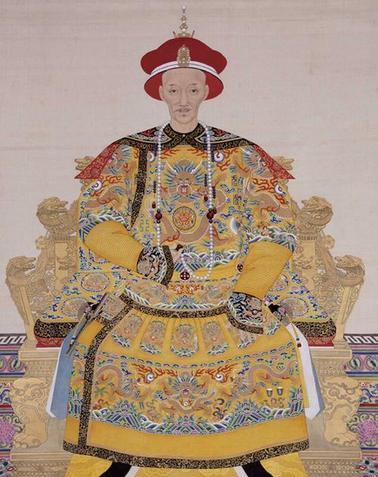The Daoguang Emperor was the sixth emperor after the Qing Dynasty entered the Customs, and he was the second son of the Jiaqing Emperor and the successor of King Dinh. After Daoguang ascended the throne, he began a series of reforms, and he was also very hard, even very frugal, but the decline of the Qing Dynasty did not change, and he also encountered the Opium War, which began the history of humiliation in modern China.

Daoguang has worked so hard or not to govern the country well, and the reasons for this are not complicated. Governing the country requires many aspects of the ability for the emperor, not only requiring him to be frugal, nor only requiring him to be diligent, but more importantly, the ability to govern the country. Daoguang is indeed a little weak in this regard. This is also the biggest reason why Daoguang does not govern this country well. And from a certain point of view, he can't blame all the responsibility on Daoguang, to put it bluntly, he is just carrying the pot for his grandfather and father.
When Daoguang took over, the trouble was still not small. His grandfather Qianlong left a mess for his father that year, and to be honest, the rotten can not be worse. Although his father, Jiaqing, carried out a series of reforms and eliminated the corrupt officials and yan, the country has not changed, and Jiaqing has always followed the ancient system, which is really a bit powerless for reform.
Therefore, What Daoguang took over was also a mess. But he, like his father, was very frightening, and he had reached the point where he had to change it early in the morning, but they were still self-contained, and standing still was itself a step backwards.
However, he was slightly more reformative than his father, Jiaqing, for example, he changed the Gang salt method to the ticket salt law. You must know that the Great Qing Salt Administration has always adopted the Ming Dynasty's Gang Salt Law, and it is not bad to dare to change it. For example, he also broke the policy of sealing mines since the middle of Qianlong and allowed mineral deposits to be mined. This is also good for the Qing Dynasty and has a positive effect on improving the lives of the people.
At the same time, he also hated corruption, and also took action against the rectification of officials, and also punished a number of corrupt river workers. In terms of safeguarding national sovereignty, he even put down Zhang Ge's rebellion, which was also his greatest merit.
But the Qing Dynasty continued to decline, and there was no improvement. That's right. At best, these reforms of Daoguang were only minor incidents. The point is that some of his changes are still just the old way they are used, and they do not involve major issues.
The seams are patched up, and they have long been useless for the Great Qing. And as an emperor, the lack of clarity and insight required by the emperor, the lack of reform spirit, is very fatal.
If it was a period of stability, he might be a good shoucheng king, but at this time, the Great Qing no longer needed an emperor like them.
And look at what he does, thrifty and thrifty, hard work, it seems admirable, but in fact, if it is an ordinary minister, it may be OK, the key is that he is the emperor, and the emperor needs to govern the country, not thrifty. I believe that this point is also vividly reflected in the body of Chongzhen, the last emperor of the Ming Dynasty, but so what? Daming is gone, and what good is it to leave only a reputation for hard work.